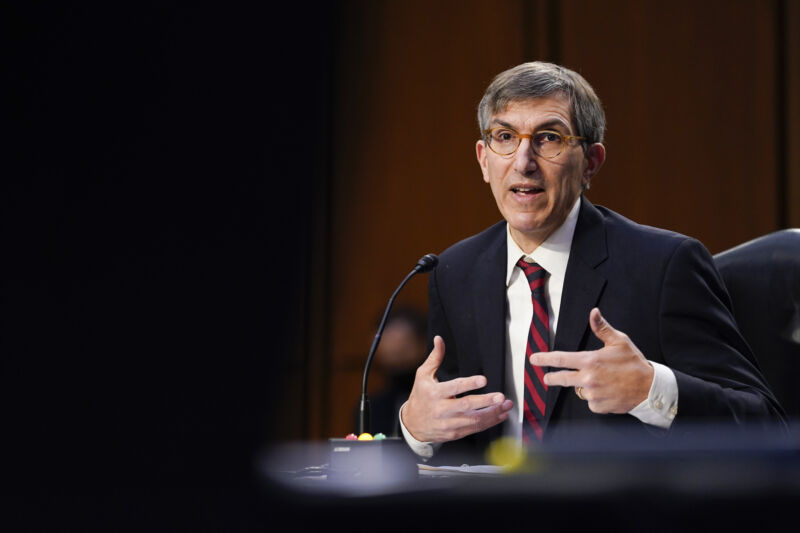
The pandemic coronavirus will likely become a seasonal respiratory virus, much like influenza, requiring annual booster shots each fall, according to three top officials at the US Food and Drug Administration.
In a commentary piece published this week in the medical journal JAMA, the officials make a case for seasonal shots and caution that preparation for this winter’s potential surge needs to begin no later than next month.
“The timeframe to determine the composition of the COVID-19 vaccine for the 2022-2023 season, to use alongside the seasonal influenza vaccine for administration in the Northern Hemisphere beginning in about October, is compressed because of the time required for manufacturing the necessary doses,” the officials write. “A decision on composition will need to be made in the US by June 2022.”
The piece was written by top FDA vaccine regulator Peter Marks, FDA Principal Deputy Commissioner Janet Woodcock, and FDA Commissioner Robert Califf.
On the one hand, the urgency to prepare for the fall may be prudent. But, it comes well before the data is settled on many aspects of their argument—particularly whether SARS-CoV-2 will become seasonal and whether boosters will be necessary.
Uncertainty
“The jury is still out as to how seasonal this virus will become,” Dr. Mike Ryan, executive director of the World Health Organization’s Health Emergencies Programme, said in a press briefing Wednesday. Its transmission dynamics will depend on how well-protected people are (by vaccination and/or prior infection) at any given time, what variant is spreading, and how people behave, such as crowding indoors, he explained. However, he did note that it’s reasonable to assume that the virus will transmit more readily when people are close together indoors.
In the case of more transmission this fall, it’s still unclear if additional boosters are necessary, as Katherine O’Brien, WHO’s Director of the Department of Immunization, Vaccines, and Biologicals, noted in the briefing. “We are in a pretty limited space in terms of data,” she said. There’s little data so far, and what we do have is mainly on mRNA vaccines—which is one of several vaccine platforms used globally—and from high-income countries, such as the US and Israel.
That data points to a short-term benefit in terms of hospitalization rates, she said, but the information is limited and not to a point where WHO can recommend future boosters. For now, she said, the agency is focused on continuing to get primary doses and existing boosters to priority groups—healthcare workers and older adults—in countries worldwide.
New normal
But, the FDA’s Marks, Woodcock, and Califf note that there’s no time to spare to prepare for the fall, given the lead-time required for manufacturing the doses. In lieu of firm evidence, the FDA will need to rely on available data and predictive modeling that could try to account for waning protection from vaccination and infection and transmission patterns in the winter. The upcoming decision will also have to be made “with the understanding that there will be some inherent residual uncertainty about the further evolution of SARS-CoV-2,” they write.
That uncertainty is already looming large over the upcoming decision. Omicron subvariants continue to evolve rapidly, demonstrating newfound abilities to evade omicron-based immune responses that have developed in the past few months. The viruses’ evolution raises concern that any omicron-based vaccines designed this summer may already be outdated by the fall.
Still, the FDA appears to have its sights on an omicron-based booster. “To date, the original, or prototype, vaccine composition deployed has been reasonably good at protecting against severe outcomes from COVID-19,” the officials write. “However, a greater depth and duration of protection might be achieved with a vaccine covering currently circulating variants.”
Whatever vaccine formulation is chosen, fall boosters will offer a chance to increase population-level protection, they argue. And, with the plan in motion, “society is moving toward a new normal that may well include annual COVID-19 vaccination alongside seasonal influenza vaccination.”








